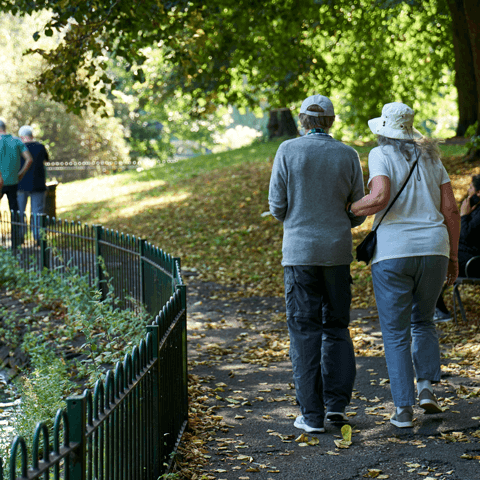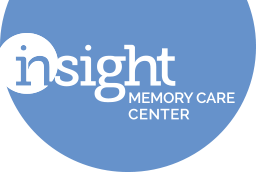
Three Resources for Staying Active
As we age, staying active becomes increasingly important for maintaining health and well-being. We have compiled some tips, resources, and opportunities to help you and your loved one prioritize staying active - and reducing stress! - in ways you enjoy.
1. Start a Walking Log
One of the simplest yet most effective forms of exercise is walking. This low-impact activity is accessible to most older adults and offers a myriad of benefits that go beyond just physical fitness.
Tips:
- Wear comfortable shoes, weather-appropriate clothing, and glasses (if you have them).
- Walk with a family member, friend, or neighbor.
- Use an assistive device if needed.
- Look forward and keep your head up.
- Aim for a total of 30 minutes of walking per day.
- Enjoy yourself!
Walking is a powerful tool for promoting health - with its numerous physical and mental health benefits, it’s never too late to start moving. So lace up those shoes, step outside, and embrace the joy of walking—your body and mind will thank you!
Download our Walking Log if you want to track your efforts!
2. Walk with Ease Program
You may also want to check out the The Arthritis Foundation Walk with Ease (WWE) program. The WWE program is designed to help people living with arthritis better manage their pain and is also ideal for people without arthritis who want to make walking a regular habit. Led by a certified Arthritis Foundation Peer Leader, this program has been shown to reduce pain and increase balance and walking pace. During the six weeks WWE program, participants are encouraged to walk three times a week.
Participants can find parks and trails by visiting the Virginia's Arthritis Friendly Parks and Trails Map.
There is also the option to enroll in the self-directed format, where participants read the WWE book and walk on their own. This program is offered at no cost to anyone who is a Virginia resident and can be on their feet for 10 minutes without increased pain.
3. Stress Reduction Program: 15 for Me
Insight is prioritizing the long-term health and well-being of our family members by giving our Reconnections and Day Center families access to a new stress reduction program called 15 For Me®. The program offers numerous health benefits, is confidential, and requires only 15 minutes per day. Made up of the 3C’s of Cardio, Cognitive, and Centered Breathing exercises, all components have been scientifically validated and proven to lower stress and enhance well-being.
Participation in the 15 For Me® program includes the following:
- The ability to take your “stress temperature” at the beginning of the Program, by answering questions on a 1-minute stress scale called the Mood-5. At any time during the Program, you have an opportunity to spot check your stress again and can take the Mood-5 as many times as you feel is necessary.
- You will set a goal to complete 15 minutes of activity each day, including 10-12 minutes a day of either cardio or cognitive activities, followed by 3-5 minutes of Centered Breathing. You can complete the full 15 minutes all at one time or break it up throughout the day as needed.
Want to Learn More?
Check out these webinars from Insight's Care Partner Training Series:
- How Exercise Helps with Brain Health - Studies show regular aerobic exercise, the kind that gets your heart and your sweat glands pumping, appears to boost the size of the hippocampus, the brain area involved in verbal memory and learning. Learn more from Beth Donnelly, MS CPT CHHC, Personal Trainer and Nutritionist.
- Reducing Falls and Improving Cognition with Exercise - Learn more from Dr. Kieran F. Reid, Ph.D., MPH, Director of the Laboratory of Exercise Physiology and Physical Performance at the Brigham and Women's Hospital.
- Brain Fitness and Exercise - When you think of fitness, you probably picture weights or running. We all know the importance of staying active, but what about brain fitness? There are many activities and cognitive interventions that can help keep your brain sharp too! Learn more about this important aspect of overall fitness, and what activities you can do to maintain brain fitness as you age from Dr. Ellen Clarke, PhD, founder of Brain Evolved Inc.
Blog
"I like that IMCC focuses on dementia-related problems and provides a focal point for families to network and socially interact in coping with dementia. It provides a community that helps us in our struggle."




